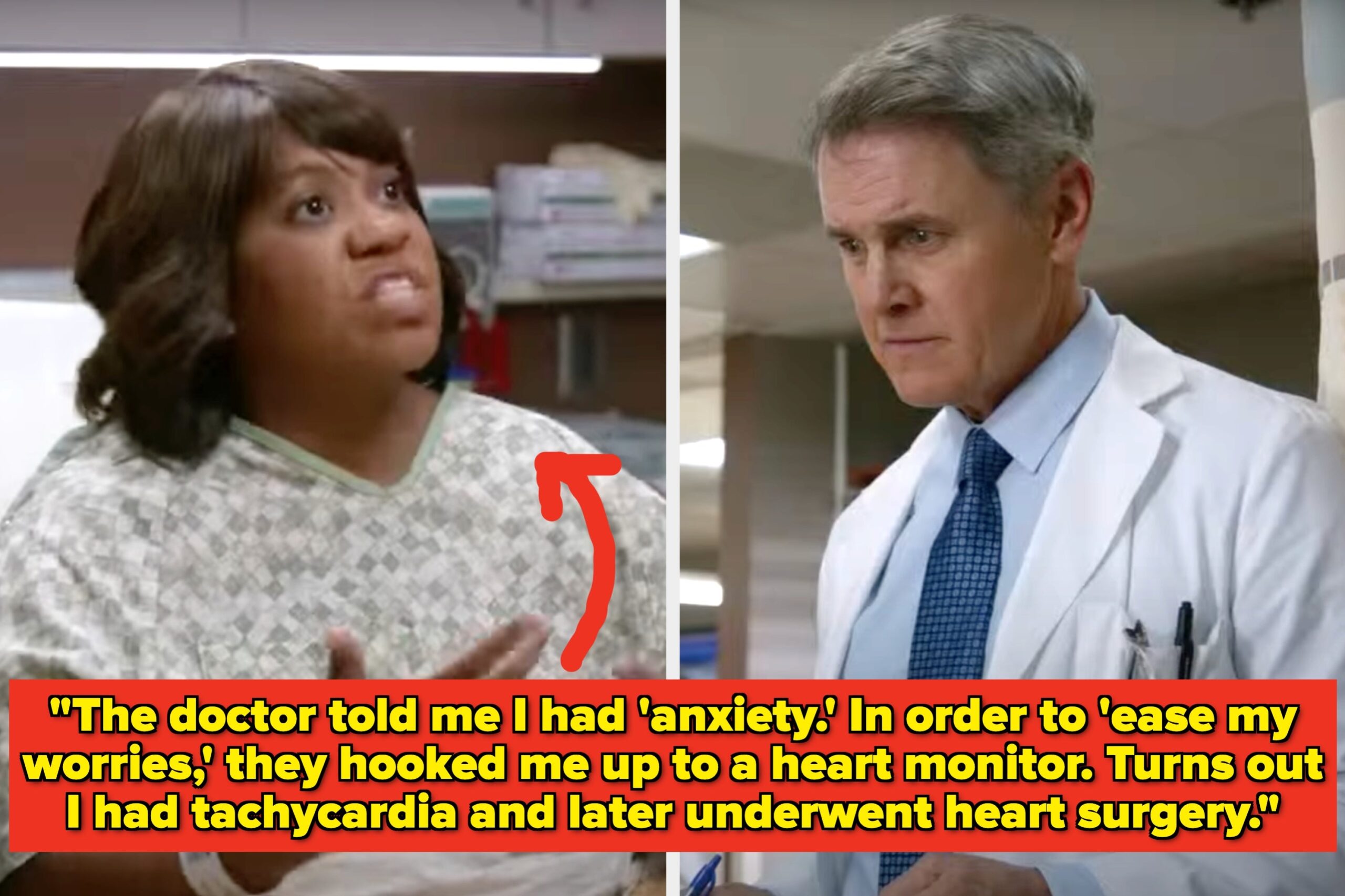Health
Chronically Ill Patients Share Heartbreaking Stories of Misdiagnosis

The experiences of chronically ill individuals highlight a troubling pattern of misdiagnosis and dismissal by healthcare professionals. In a recent gathering of the BuzzFeed Community, many members shared their stories, revealing instances where their serious health concerns were overlooked or improperly diagnosed. These accounts underscore the urgent need for improved medical awareness and patient advocacy.
One participant described a three-year struggle with what was presumed to be severe postpartum depression. Despite undergoing various antidepressant treatments, the individual’s symptoms persisted. After seeking a second opinion, tests revealed underlying conditions: Hashimoto’s disease and hypothyroidism. Ultimately, this led to a complete thyroidectomy, a procedure that could have been avoided had the initial doctor considered appropriate testing sooner.
Another participant shared their journey following a COVID-19 infection in 2021. Initially diagnosed with anxiety by the National Health Service (NHS), they experienced debilitating symptoms that included shaking and panic attacks. A visit to a doctor in Mexico resulted in a diagnosis of long COVID, a condition affecting numerous individuals worldwide. The patient continues treatment four years later, emphasizing the need for better recognition of post-viral syndromes.
Misdiagnoses can lead to severe health consequences, as illustrated by a 40-year-old individual from Massachusetts who was incorrectly diagnosed with type 2 diabetes. Despite lifestyle changes and adherence to medication, their condition worsened until they experienced diabetic ketoacidosis. A simple blood test eventually confirmed the presence of type 1 diabetes, highlighting the dangers of assumptions in medical practice.
The issue of misdiagnosis extends to women’s health as well. One woman recounted years of painful periods and dismissive responses from her gynecologist regarding potential polycystic ovary syndrome (PCOS). After seeking further medical advice, she discovered a report indicating PCOS, which had been overlooked. Switching doctors not only provided her with the correct diagnosis but also allowed her to address additional complications that arose.
In another instance, a participant suffered from unexplained weakness and coordination difficulties for years. Despite multiple consultations, their symptoms were dismissed as inconsequential. Eventually, a doctor diagnosed them with seronegative myasthenia gravis, leading to a life-changing treatment plan. This case illustrates the importance of persistence in seeking medical care.
A third account detailed the frustrations faced by an individual diagnosed with Crohn’s disease after months of severe gastrointestinal issues. An initial doctor dismissed their symptoms, attributing them to lifestyle choices rather than a serious condition. A new physician conducted thorough testing, leading to proper treatment and remission. This experience showcases the critical role of attentive and empathetic medical practitioners.
Many of these stories reveal a common thread: patients feeling unheard and invalidated by medical professionals. One individual shared their struggle with back and joint pain, which was dismissed for five years until a diagnosis of ankylosing spondylitis was finally made. The emotional toll of being ignored can be as detrimental as the physical symptoms themselves.
This call for change in the medical field is echoed by patients who emphasize the need for healthcare providers to listen actively and validate their concerns. The testimonies collected from the BuzzFeed Community serve as a poignant reminder of the challenges faced by those with chronic illnesses. They urge both patients and doctors to seek clarity and understanding in the pursuit of health.
In conclusion, the stories shared by these individuals highlight the pressing need for reform in medical diagnostics and patient care. As the healthcare community continues to evolve, it is crucial to ensure that patients are heard, understood, and treated with the respect and seriousness they deserve. These experiences not only reflect personal struggles but also signal an opportunity for healthcare systems to improve their approaches to chronic illness management.
-

 Health3 months ago
Health3 months agoNeurologist Warns Excessive Use of Supplements Can Harm Brain
-

 Health3 months ago
Health3 months agoFiona Phillips’ Husband Shares Heartfelt Update on Her Alzheimer’s Journey
-

 Science1 month ago
Science1 month agoBrian Cox Addresses Claims of Alien Probe in 3I/ATLAS Discovery
-

 Science1 month ago
Science1 month agoNASA Investigates Unusual Comet 3I/ATLAS; New Findings Emerge
-

 Science4 weeks ago
Science4 weeks agoScientists Examine 3I/ATLAS: Alien Artifact or Cosmic Oddity?
-

 Entertainment4 months ago
Entertainment4 months agoKerry Katona Discusses Future Baby Plans and Brian McFadden’s Wedding
-

 Science4 weeks ago
Science4 weeks agoNASA Investigates Speedy Object 3I/ATLAS, Sparking Speculation
-

 Entertainment4 months ago
Entertainment4 months agoEmmerdale Faces Tension as Dylan and April’s Lives Hang in the Balance
-

 World3 months ago
World3 months agoCole Palmer’s Cryptic Message to Kobbie Mainoo Following Loan Talks
-

 Science4 weeks ago
Science4 weeks agoNASA Scientists Explore Origins of 3I/ATLAS, a Fast-Moving Visitor
-

 Entertainment4 months ago
Entertainment4 months agoLove Island Star Toni Laite’s Mother Expresses Disappointment Over Coupling Decision
-

 Entertainment3 months ago
Entertainment3 months agoMajor Cast Changes at Coronation Street: Exits and Returns in 2025









